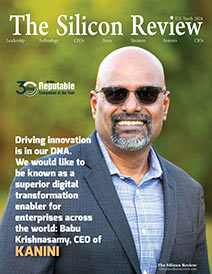>>
Industry>>
Startups>>
How to ensure business continu...How to ensure business continuity in the golden age of start-ups
The Silicon Review
19 March, 2020
Whether you want to start an online clothing store, real estate firm, or Blockchain venture, the economic context has never been friendlier for entrepreneurs. Funding options are more flexible than ever before, digital marketing is affordable, and customers are generally receptive of startups. At the same time, competition is becoming fiercer by the day and success is by no means guaranteed. In fact, statistics show that, even with the perks above, 90% of startups fail. A solid business plan and a great product are the basic requirements for a healthy organization, but here’s what else you need to ensure its continuity:
Mentorship and professional business counseling
Everyone looks up to entrepreneurs and expects a great deal from them. They have to be leaders, innovators, strategic thinkers, and financial experts. However, entrepreneurs are humans too and they can’t achieve everything at once. Not without help, at least. Even if you strongly believe in your product and mission statement, running an organization is never easy, especially when you’re doing this for the first time. A mentor or business counselor can help you navigate the troubled waters of entrepreneurship and contribute with their know-how to help your organization thrive. Successful businessmen like Lawrence Jemal have made companies excel so if you feel that your goals are beyond reach, don’t hesitate to ask for advice. According to the Startup Genome Report, which delves into the reasons why most startups fail, mentored startups grow up to 3.5 times faster than unmentored ones and raise seven times more money. Lack of experience isn’t necessarily a drawback if you never stop learning and know where to ask for help.
Mastering scalability
After months of planning and grinding, finally breaking through and turning your brand into a household name is both rewarding and intoxicating. While it’s normal to be excited, celebrate, and make big plans, you should also stay realistic. Growing too much, too soon can have the opposite effect and generate an internal crisis. For best results, you should try to expand slowly, based on a thorough scalability plan. Without the resources, staff, and infrastructure, small startups can become overwhelmed, encounter production issues, and fail to deliver. Overinvesting and growth for the sake of growth aren’t good in the long run. To ensure business continuity, your expansion plan needs to be realistic and sustainable.
Balancing innovation with feasibility
Buzz phrases like “disruptive”, “thinking outside the box” and “making the world a better place” make entrepreneurs want to shock and inspire. While innovation is important in business, it also needs to be rooted in the reality of the market. A product idea may sound awesome but do you have what it takes to make it real fast enough? According to a 2015 study, 42% of innovations fail because they take too long to develop and customers lose interest. And last, but, definitely not least, ask yourself if there is a demand for your product. To be successful, you need a creative spirit, but a practical sense is just as important. Once you’ve managed to reach a balance between these two, you’ll be unstoppable.









